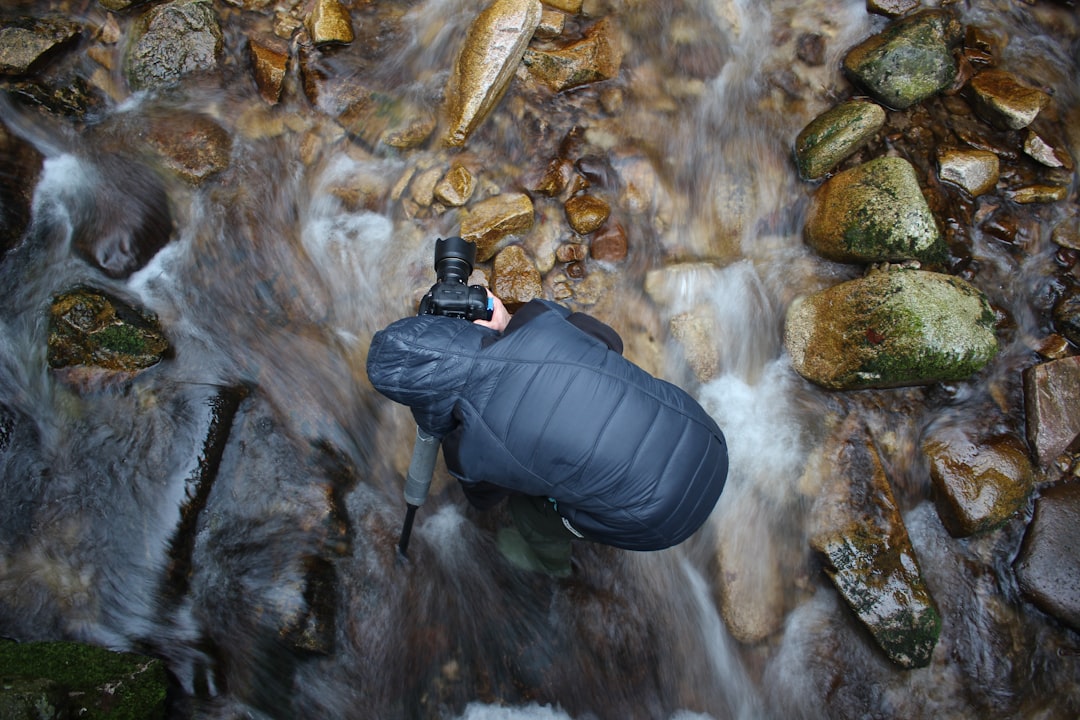Welcome to Comfort Zone 101! Let’s dive into the concept of comfort zones and why it’s important to step out of them. We’ve all been there – comfortable in our routines and sticking to what we know. While this can be reassuring, it can also limit personal growth and opportunities.
Your comfort zone is a state of mind where you feel safe and familiar. It’s where you don’t feel stressed or anxious, and you know what to expect. However, over time, this can lead to complacency, and you may miss out on achievements or experiences that are beyond what you thought was possible.
Stepping out of your comfort zone means doing things differently, taking risks, and accepting new challenges. It’s not always easy, but it is necessary for personal growth and development. It can be a scary prospect, but with the right mindset and encouragement, we can all break out of our comfort zones and embrace the unknown.
Throughout the following chunks, we’ll discuss the benefits of stepping out of our comfort zones, mastering courage, breaking the mold, daring to dream, adapting to change, and finally, taking the necessary leap. Let’s grow together and learn how comfortable stepping out of our comfort zones can be.
The Benefits of Stepping Out: Perks of Personal Growth
As humans, we generally like routine and predictability. We like to be comfortable in our day-to-day lives, and often, we get so caught up in the familiarity of our daily routine that we forget to challenge ourselves. However, as much as we enjoy our comfort zones, there comes a time when we need to step out of them to pursue personal growth.
Stepping out of our comfort zone can be intimidating, and it can be difficult to take that first step into the unknown. But, believe it or not, the benefits of stepping out of your comfort zone far outweigh any apprehension you may feel.
Firstly, personal growth is one of the most significant benefits of stepping out of your comfort zone. When we try something new, we’re forcing ourselves to learn and grow. It’s important to challenge ourselves and not settle for mediocrity. By doing so, we expand our skill set and depth of knowledge, making us more knowledgeable and confident individuals.
Secondly, stepping out of your comfort zone leads to greater self-confidence. When we’re constantly challenging ourselves, we become more comfortable with uncertainty and more adaptable to new situations. We learn to trust ourselves and our decisions, which can translate into other areas of our lives.
Thirdly, trying new things helps broaden our perspectives. We become more open-minded and less judgmental of others. We begin to understand the complexity of the world around us and appreciate the diversity of the people in it.
There are many benefits to stepping out of your comfort zone. Personal growth, increased confidence, and broader perspectives are just a few rewards of taking on new challenges. So, what are you waiting for? Start taking small steps to break out of your comfort zone and watch the magic unfold.
Personal growth, increased confidence, and broader perspectives are just a few rewards of taking on new challenges.
Mastering Courage: Facing Fears & Overcoming Limits
We all have fears and limitations that hold us back from achieving our true potential. Whether it’s fear of failure, fear of rejection, fear of the unknown, or fear of success, these fears can become so ingrained in our minds that we start to believe they are a part of who we are. But the truth is, they are just barriers that we have the power to overcome.
Mastering courage is not about being fearless, it’s about acknowledging your fears and having the strength to face them head-on. It’s about taking risks and trying new things, even when it feels uncomfortable or scary. When we step outside of our comfort zone and face our fears, we open up a whole new world of possibilities.
Overcoming our limits is also about pushing ourselves beyond what we think we are capable of. We often place limitations on ourselves based on our past experiences or beliefs about what is possible for us. But the reality is, we are capable of so much more than we think. By breaking down these self-imposed limits and challenging ourselves to do things we never thought were possible, we can unlock our true potential.
Of course, mastering courage is easier said than done. It takes practice and persistence to develop the ability to face our fears and push past our limits. But the more we do it, the easier it becomes. We start to build confidence in ourselves and our abilities, and we become more resilient in the face of adversity.
So if you’ve been holding yourself back from chasing your dreams or trying something new, it’s time to start mastering courage. Take a deep breath, acknowledge your fears, and take that first step out of your comfort zone. You may be surprised at what you are truly capable of.
By breaking down these self-imposed limits and challenging ourselves to do things we never thought were possible, we can unlock our true potential.
Breaking the Mold: Identifying & Performing New Challenges
When it comes to stepping outside of our comfort zones, it’s not always easy to know where to start. We may be filled with fear or doubt, and wonder if we have what it takes to take on new challenges. That’s why it’s so important to take the time to identify the areas where we’re feeling stagnant or unfulfilled, and to explore some new paths that we never thought possible.
The first step in breaking the mold is to get curious. What new things have you always wanted to try, but haven’t been able to muster up the courage to explore? Maybe you’ve always wanted to learn a new language, take a cooking class, or try your hand at a musical instrument. Whatever it is, there’s no better time than the present to start exploring new possibilities.
Once you’ve identified some new challenges you want to tackle, it’s time to start planning. This might mean signing up for that cooking class you’ve always wanted to take, or finding a language exchange partner who can help you learn a new language. Whatever it is, make a plan and stick to it. Set achievable goals and take small steps along the way.
Of course, breaking the mold isn’t always easy. There will be moments of uncertainty or fear, and it’s important to remember that it’s okay to feel uncomfortable. In fact, feeling uncomfortable is a sign that we’re making progress and stepping outside of our comfort zones. Embrace the discomfort and keep pushing forward, knowing that you’re growing and learning with each new challenge you take on.
Ultimately, breaking the mold is about taking risks and trying new things. It’s about pushing past your limits and discovering what you’re truly capable of. And the best part? Each time you take on a new challenge and succeed, you’ll feel a sense of accomplishment and pride that will only motivate you to keep going, achieving more and more along the way. So go ahead – break the mold and see where it takes you. You may just surprise yourself!
Of course, breaking the mold isn’t always easy.
Daring to Dream: Setting Goals Beyond Your Zone
As human beings, we are wired to crave stability, safety, and predictability. We often find comfort in staying within the confines of our familiar routines, thought patterns, and beliefs. However, this can also be limiting and prevent us from discovering our full potential.
One way to break out of our comfort zone is to dare to dream and set goals that are beyond what we think is possible. This can be anything from learning a new skill, taking on a new career path, traveling to a new place, or even starting our own business.
The key to setting goals beyond our zone is to first identify what we truly want and what motivates us. It is important to examine our passions, values, and vision for our future. Once we have a clear understanding of what we want, we can start setting specific, measurable, achievable, relevant, and time-bound (SMART) goals.
It is also important to acknowledge and embrace the fear that comes with stepping out of our comfort zone. Discomfort and uncertainty are natural reactions to new challenges, but they can also be opportunities for growth and development. By pushing ourselves beyond what feels comfortable, we can develop a sense of resilience and confidence that can help us tackle future challenges.
Lastly, it is important to stay adaptable and open-minded as we pursue our goals beyond our comfort zone. Our plans and aspirations may change along the way, and it is important to be flexible and willing to pivot. We should celebrate our progress and learn from our failures, as they are valuable lessons that can only strengthen our journey.
Daring to dream and setting goals beyond our comfort zone can be an intimidating and rewarding experience. By identifying what we truly want, setting SMART goals, embracing discomfort, and staying adaptable and open-minded, we can discover our full potential and live a fulfilling life beyond our wildest dreams.
Once we have a clear understanding of what we want, we can start setting specific, measurable, achievable, relevant, and time-bound (SMART) goals.
Adapting to Change: Flexibility & Resilience
Change is inevitable in life, often unexpected and unavoidable. It is essential to learn how to adapt to changes that come our way, rather than resisting them. Being open to change, and demonstrating flexibility and resilience, can help us bounce back from life’s challenges and setbacks.
One way to build resilience is to practice mindfulness. Mindfulness involves focusing on the present moment, accepting it without judgment, and being aware of your thoughts and feelings. By practicing mindfulness, individuals can develop resilience and withstand the challenges of change.
Another way to build resilience is through self-care. Taking care of ourselves physically, emotionally, and mentally can help us be more adaptable to change. This might mean getting enough sleep, exercising regularly, having good nutrition, or engaging in activities that bring us joy.
Flexibility, on the other hand, requires a willingness to be open to new possibilities and an eagerness to learn. Being flexible means being able to see things from different perspectives, and not being rigid or stuck in old ways of thinking. By embracing change with flexibility, individuals can learn to adapt quickly to new situations, and be more open to trying new things.
Overall, adapting to change requires a willful approach, a strong sense of self-awareness, and a willingness to be flexible and resilient. We cannot control the world around us or the changes that happen in our life, but we can control how we react to them. By cultivating mindfulness, practicing self-care, and embracing flexibility, we can learn to adapt to change and grow stronger from the experiences life throws our way.
Taking care of ourselves physically, emotionally, and mentally can help us be more adaptable to change.
Conclusion: Taking the Leap
It’s safe to say that most of us prefer to stay firmly planted within our comfort zones. After all, it’s where we feel the most secure and confident. But stepping out of that zone, even just a little bit, can lead to some incredible personal growth and development.
By taking a chance and facing our fears, we open ourselves up to a world of new opportunities and experiences. We can learn new skills, meet new people, and gain a whole new perspective on life. And while it isn’t always easy, mastering our courage can be one of the most rewarding achievements we’ll ever experience.
Breaking the mold and trying something new can be exhilarating, too. When we challenge ourselves to identify and perform new tasks, we’re forced to push past our self-imposed limits and reach higher goals. And setting those goals beyond our comfort zone can be truly inspiring, helping us to grow in ways we never thought possible.
Adapting to change is another important aspect of stepping outside of our comfort zones. By embracing flexibility and resilience, we can navigate even the toughest of circumstances with grace and ease. This ability to adapt can help us handle whatever life throws our way, no matter how unexpected.
In the end, taking the leap and stepping outside of our comfort zones is a powerful tool for personal growth and development. It’s not about taking reckless risks or jumping blindly into the unknown. It’s about recognizing our fears and limiting beliefs, and challenging ourselves to grow beyond them. So go ahead and take that first step – you never know where it might lead you.





